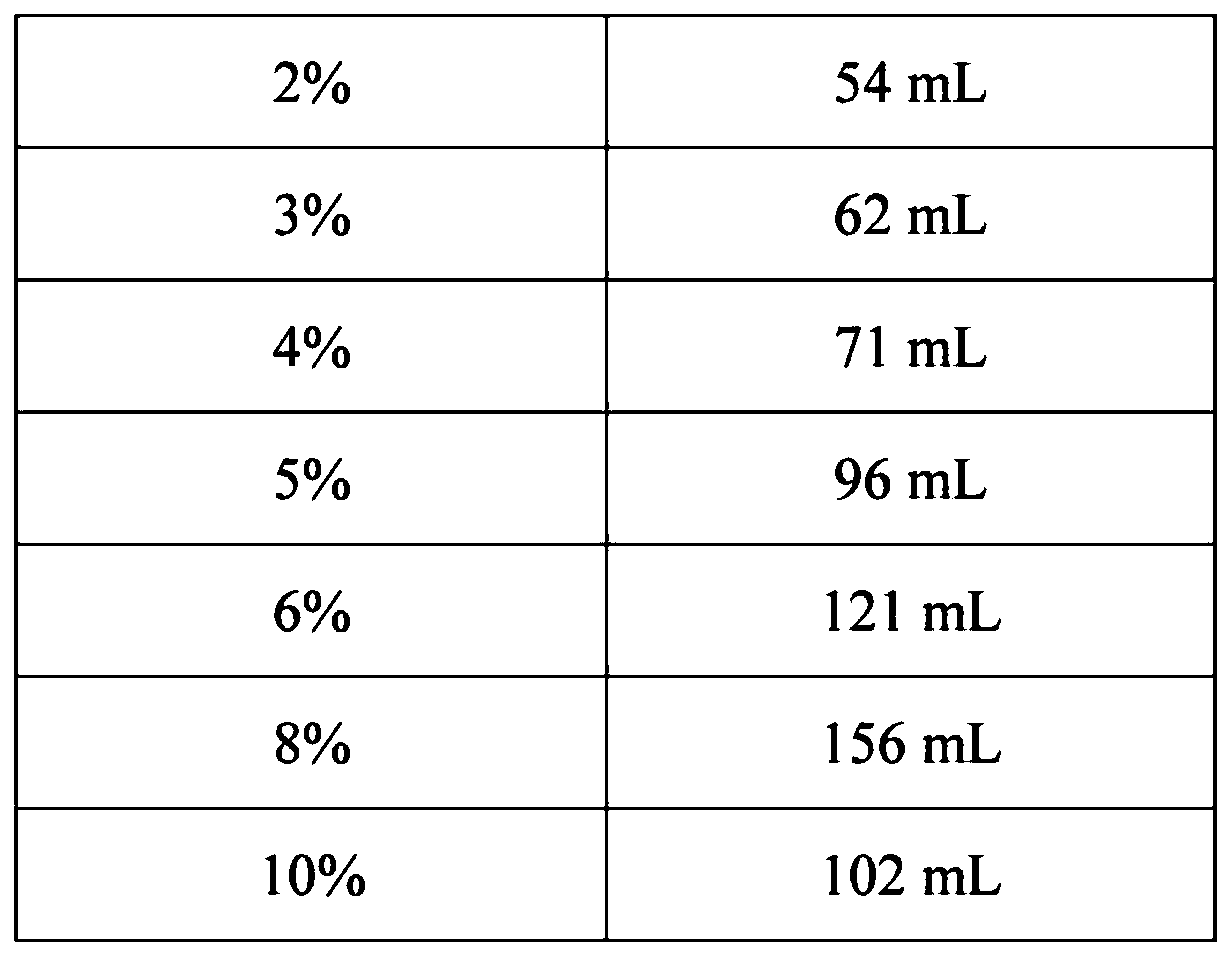Method for improving gasification rate of residual oil by using biological enzyme
A biological enzyme and residual oil technology, applied in the direction of microbial-based methods, biochemical equipment and methods, microbial measurement/inspection, etc., can solve the problems of slow conversion of crude oil into methane gas and low degradation efficiency, and achieve the expansion of oil Effects of storage adaptability, improvement of degradation rate, and improvement of uptake efficiency
- Summary
- Abstract
- Description
- Claims
- Application Information
AI Technical Summary
Problems solved by technology
Method used
Image
Examples
Embodiment 1
[0035] Overview of the test reservoir: The thickness of the oil layer in Block A of Shengli Oilfield is 5.5m, the reservoir temperature is 50°C, the reservoir pressure is 11.8MPa, the salinity is 80500mg / L, and the permeability is 260×10 -3 μm 2 , porosity 35.5%, crude oil viscosity 1285mPa.s, water content 98.2%. After sampling and analysis, Thermotoga and Pseudomonas existed in Block A. Utilize the method of the present invention to implement the present invention in this oil well, concrete steps are as follows:
[0036] (1) Target reservoir screening
[0037] The reservoir temperature of Block A of Shengli Oilfield in the test block is 50°C, and the permeability is 260×10 -3 μm 2 , the viscosity of crude oil is 1285mPa.s, and the water content is 98.2%. Thermotoga and Pseudomonas exist in block A. Meet the screening criteria of the present invention.
[0038] (2) Analysis of the structure of the endogenous microbial community in the target oil reservoir
[0039] The ...
Embodiment 2
[0058] General situation of the test reservoir: Shengli Oilfield block F reservoir thickness 12m, reservoir temperature 65℃, reservoir pressure 13MPa, salinity 75000mg / L, permeability 550×10 -3 μm 2 , porosity 28.8%, crude oil viscosity 3548mPa.s, oil well water cut 98.5%. Desulfurization bacteria and Pseudomonas bacteria existed in the oil reservoir after sampling analysis. Utilize the method of the present invention to implement the present invention in this oil well, concrete steps are as follows:
[0059] (1) Target reservoir screening
[0060] The temperature of the reservoir in the test block F is 65°C, and the permeability is 550×10 -3 μm 2 , the viscosity of crude oil is 3548mPa.s, and the water content is 98.5%. There are desulfurization bacteria and pseudomonas in block F. Meet the screening criteria of the present invention.
[0061] (2) Analysis of the structure of the endogenous microbial community in the target oil reservoir
[0062] The analysis method of...
Embodiment 3
[0081] Overview of the test reservoir: The thickness of the oil layer in Block G of Shengli Oilfield is 13.5m, the reservoir temperature is 70°C, the reservoir pressure is 14.6MPa, the salinity is 45000mg / L, and the permeability is 1050×10 -3 μm 2 , porosity 32.8%, crude oil viscosity 5513mPa.s, oil well water cut 99.2%. Sampling and analysis showed that Thermotoga and Pseudomonas existed in the oil reservoir. Utilize method of the present invention to implement wooden invention in this oil well, concrete steps are as follows:
[0082] (1) Target reservoir screening
[0083] The reservoir temperature of the test block G is 70°C, and the permeability is 1050×10 -3 μm 2 , the viscosity of crude oil is 5513mPa.s, and the water content is 99.2%. There are Thermotoga and Pseudomonas in block G. Meet the screening criteria of the present invention.
[0084] (2) Analysis of the structure of the endogenous microbial community in the target oil reservoir
[0085] The analysis me...
PUM
| Property | Measurement | Unit |
|---|---|---|
| viscosity | aaaaa | aaaaa |
| thickness | aaaaa | aaaaa |
| viscosity | aaaaa | aaaaa |
Abstract
Description
Claims
Application Information
 Login to View More
Login to View More - R&D
- Intellectual Property
- Life Sciences
- Materials
- Tech Scout
- Unparalleled Data Quality
- Higher Quality Content
- 60% Fewer Hallucinations
Browse by: Latest US Patents, China's latest patents, Technical Efficacy Thesaurus, Application Domain, Technology Topic, Popular Technical Reports.
© 2025 PatSnap. All rights reserved.Legal|Privacy policy|Modern Slavery Act Transparency Statement|Sitemap|About US| Contact US: help@patsnap.com


